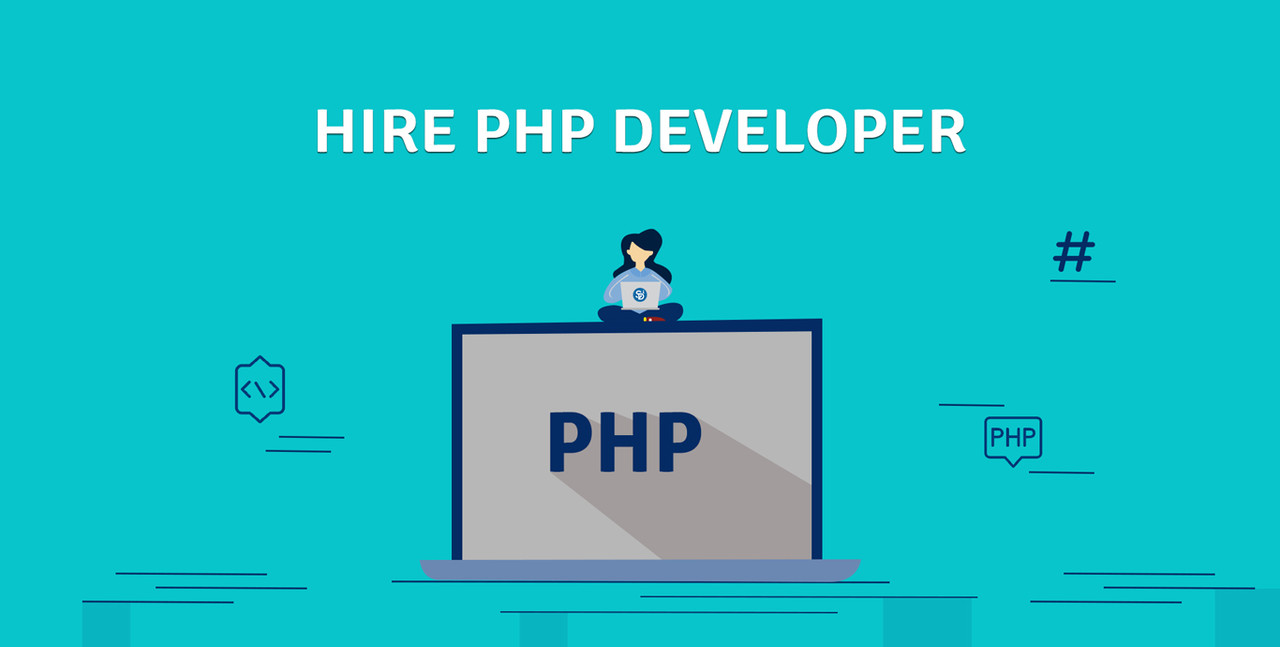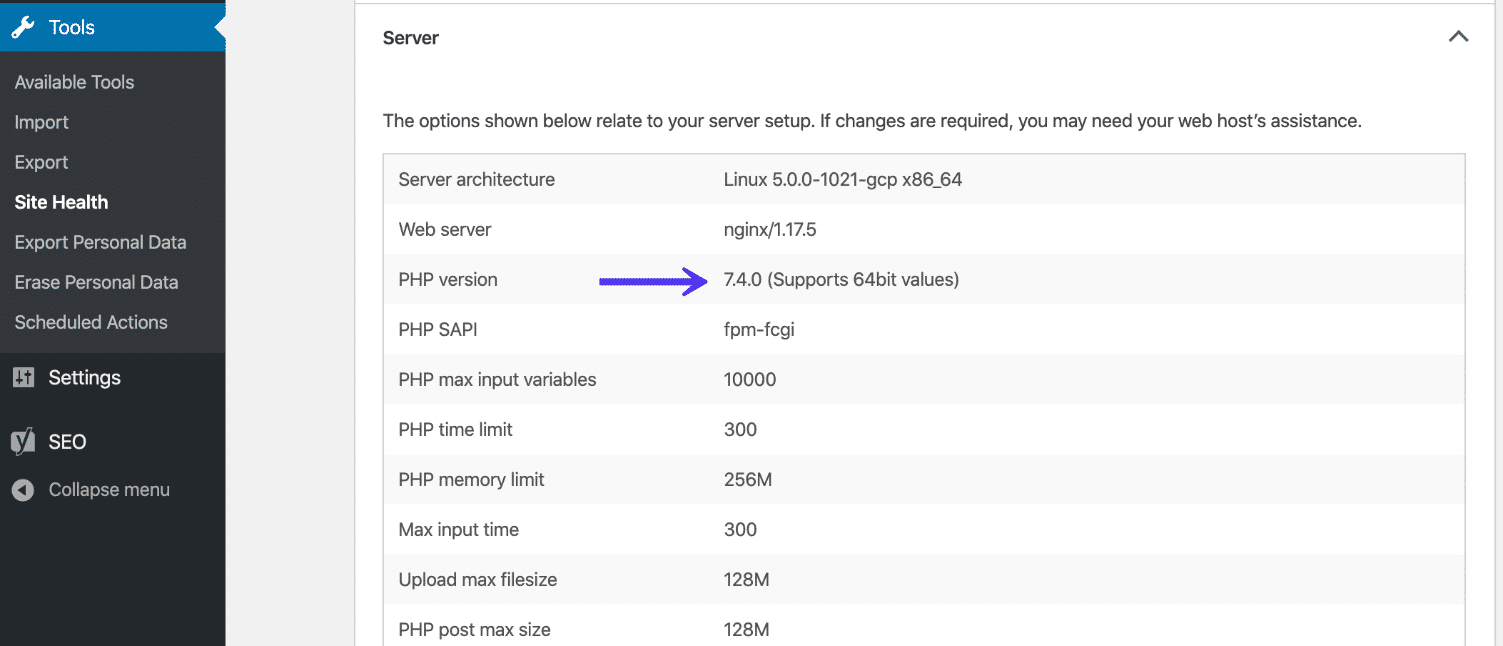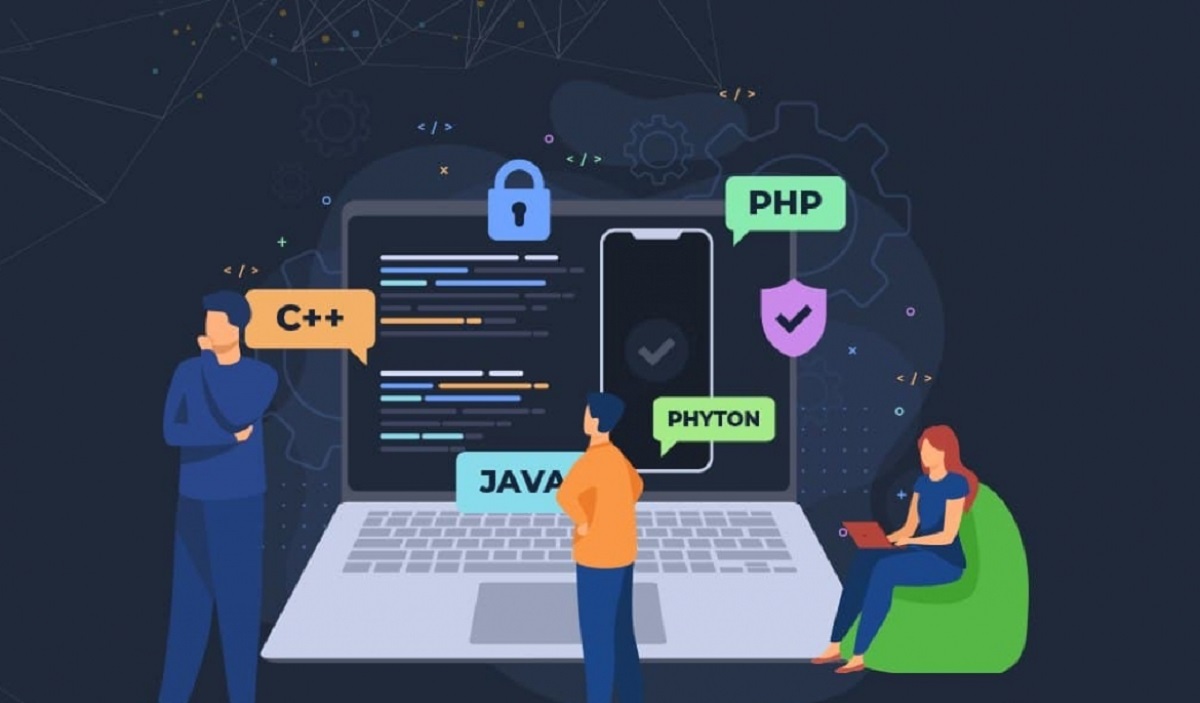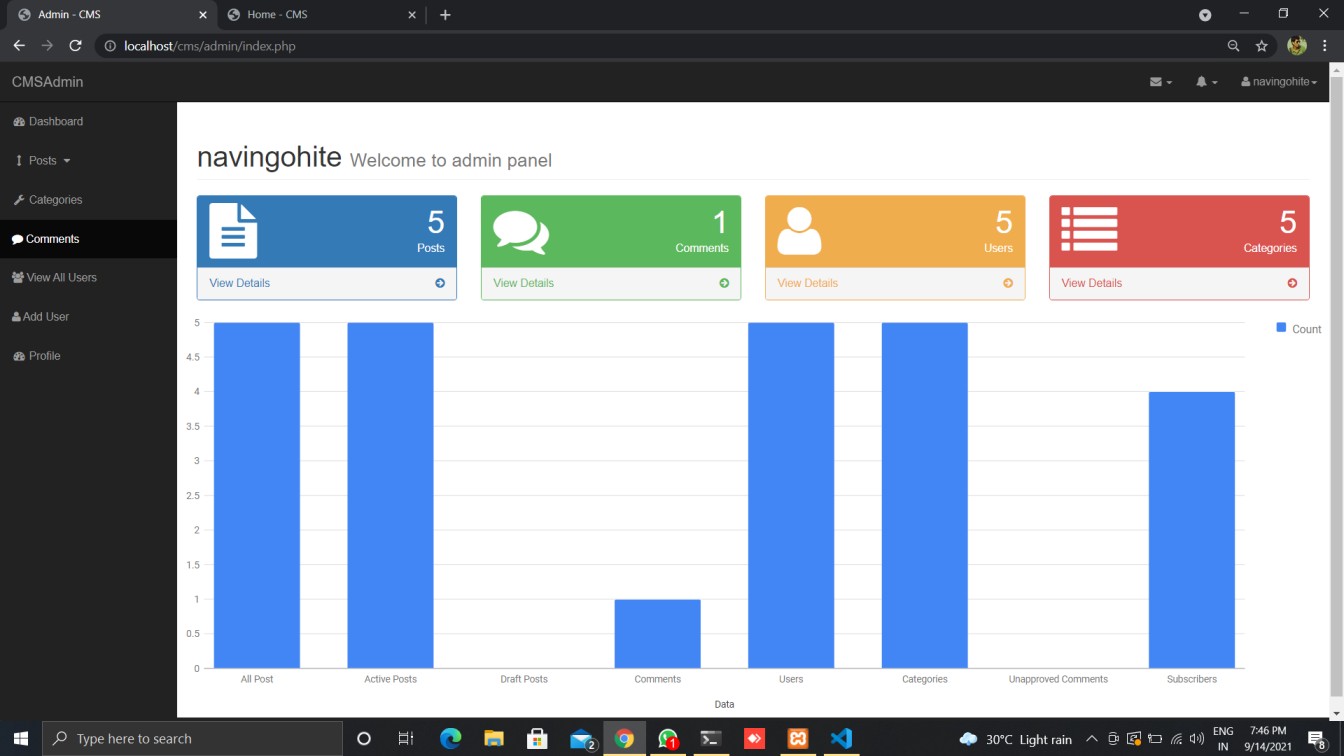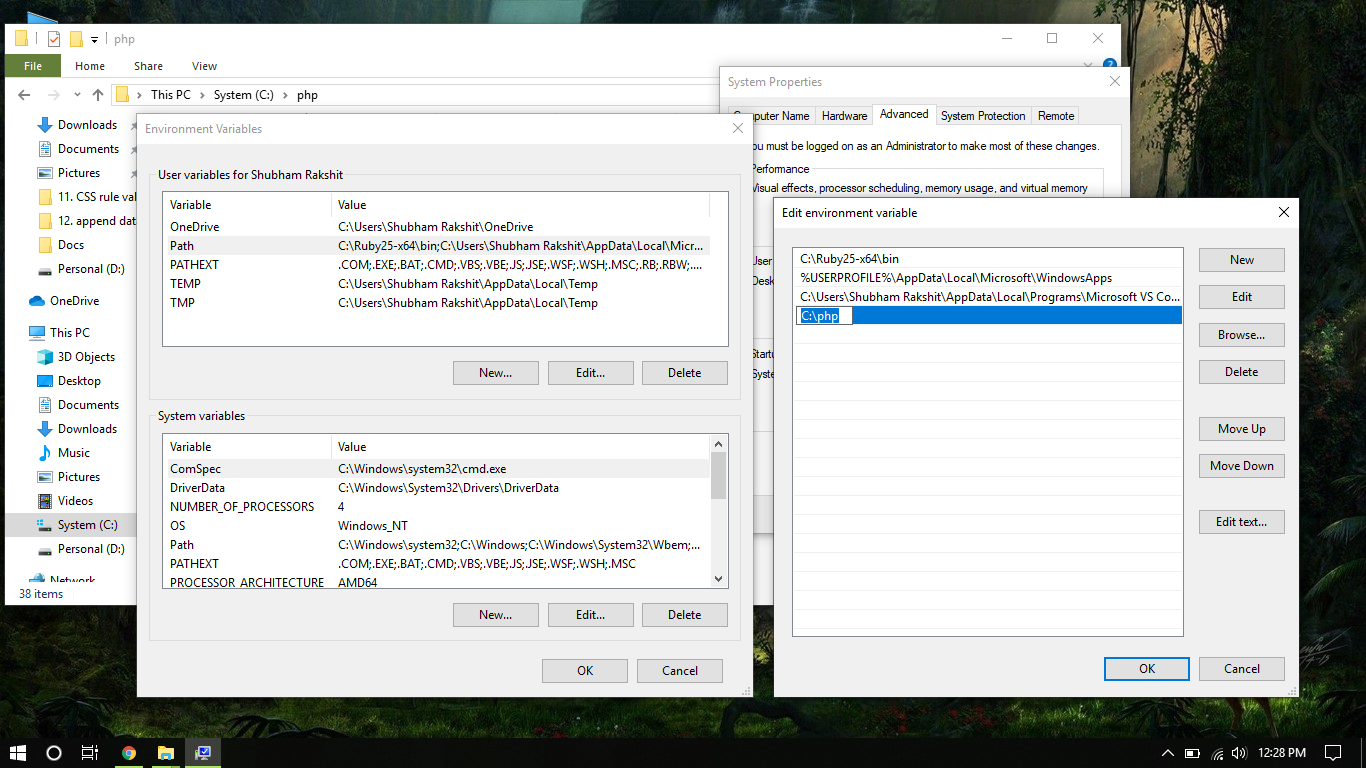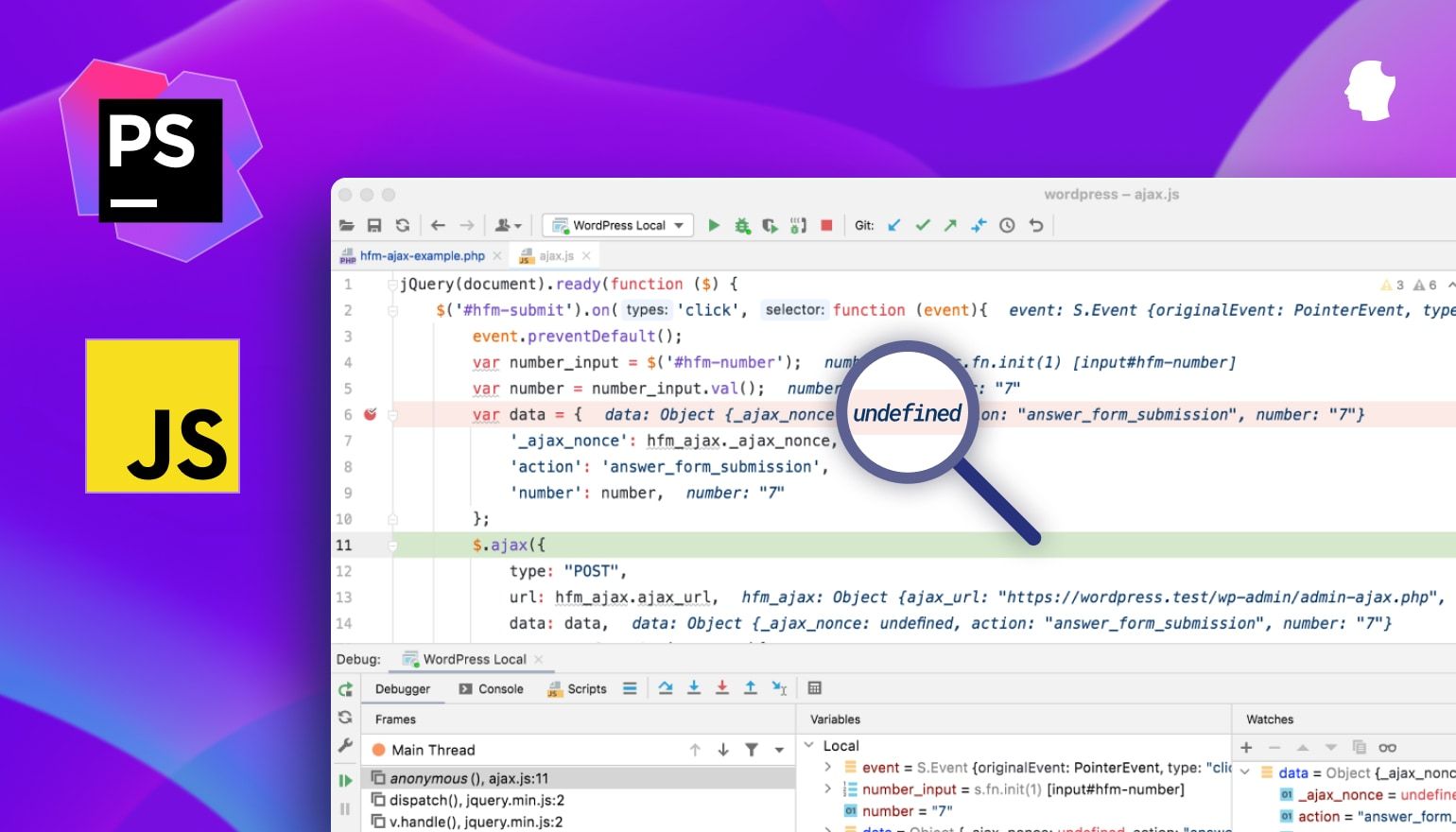Introduction
Welcome to our guide on how to hire a skilled PHP developer. In today’s digital age, PHP has emerged as a popular and powerful programming language for web development. Whether you’re looking to build a dynamic website, an e-commerce platform, or a custom web application, hiring a skilled PHP developer is crucial to ensuring the success of your project.
But with so many developers out there, how do you find the right one? This guide will provide you with valuable insights and practical tips on what to look for when hiring a PHP developer. From assessing technical skills to evaluating problem-solving abilities and communication skills, we’ll cover all the important aspects to consider in your hiring process.
A skilled PHP developer not only possesses the technical knowledge and expertise but also demonstrates problem-solving skills, critical thinking abilities, and effective communication and collaboration abilities. By understanding these key factors, you can find a developer who not only meets your technical requirements but also integrates well within your team dynamic.
In this guide, we’ll explore various methods to find PHP developers, assess their skills and experience, conduct effective interviews and technical assessments, evaluate code samples and portfolios, check references and past projects, and negotiate compensation.
Additionally, onboarding and training are crucial aspects of the hiring process. We’ll also discuss how to ensure a smooth transition for the new PHP developer, enabling them to quickly adapt to your organization’s workflows and contribute effectively to your projects.
By the end of this guide, you’ll have a comprehensive understanding of how to identify and hire a skilled PHP developer who can turn your web development ideas into a reality. So, let’s get started on this exciting journey of finding the perfect fit for your team and projects!
The Importance of Hiring a Skilled PHP Developer
When it comes to web development, hiring a skilled PHP developer is of paramount importance. PHP, which stands for Hypertext Preprocessor, is an open-source scripting language widely used for building dynamic websites and web applications. Its versatility, flexibility, and extensive community support have made it a popular choice for developers worldwide.
A skilled PHP developer brings a wealth of benefits to your development team and projects. Here are a few reasons why hiring a skilled PHP developer is crucial:
1. Expertise and Technical Knowledge: A skilled PHP developer possesses in-depth knowledge and expertise in PHP programming. They are proficient in coding efficient and secure PHP applications, implementing best practices, and adhering to coding standards. This expertise ensures that your web development projects are executed professionally and with high quality.
2. Efficient Development Process: Hiring a skilled PHP developer can greatly streamline your development process. They are well-versed in using PHP frameworks and libraries, which enable rapid development and simplify complex tasks. This translates into faster delivery of projects, reduced development time, and increased efficiency in meeting deadlines.
3. Scalability and Reliability: Skilled PHP developers have experience in building scalable and reliable web applications that can handle increasing user demands and traffic. They understand the importance of writing scalable code, optimizing database queries, and implementing caching strategies to ensure smooth performance and user experience.
4. Customization and Integration: PHP is highly customizable and integrates well with various technologies and platforms. A skilled PHP developer can leverage this flexibility to integrate your website or application with third-party APIs, databases, payment gateways, and other systems. This allows for seamless functionality and enhances the user experience.
5. Security and Maintenance: With the increasing instances of cyber threats and vulnerabilities, ensuring the security of your web applications is paramount. A skilled PHP developer is well-versed in implementing security measures, such as input validation, data sanitization, and secure coding practices, to safeguard your website from potential risks.
6. Ongoing Support and Troubleshooting: Web development projects require ongoing maintenance, updates, and troubleshooting. A skilled PHP developer can provide timely support and address any issues that may arise. Their experience in debugging, error handling, and performance optimization ensures the smooth functioning of your website or application.
By hiring a skilled PHP developer, you can ensure the successful execution of your web development projects, deliver high-quality applications, and provide a seamless user experience. With their expertise, your website or application will be equipped with the necessary features, functionalities, and security measures to meet your business goals and stand out in the highly competitive digital landscape.
Key Skills and Qualities to Look for in a PHP Developer
When hiring a PHP developer, it’s important to consider not only their technical skills but also their personal qualities and attributes. Here are some key skills and qualities to look for in a skilled PHP developer:
1. Proficiency in PHP: A skilled PHP developer should have a strong command over PHP programming language and its frameworks such as Laravel, Symfony, or CodeIgniter. They should be well-versed in various PHP concepts, syntax, and be able to write clean, efficient, and maintainable code.
2. Knowledge of Web Technologies: In addition to PHP, a good PHP developer should have a solid understanding of web technologies such as HTML, CSS, JavaScript, and AJAX. This knowledge enables them to seamlessly integrate front-end components and create dynamic and interactive web applications.
3. Database Skills: Since PHP is often used in conjunction with databases, a skilled PHP developer should be proficient in working with database management systems like MySQL, PostgreSQL, or MongoDB. They should have experience in writing optimized SQL queries, designing database schemas, and implementing data models.
4. Problem-solving and Critical Thinking: A skilled PHP developer should possess strong problem-solving and critical thinking abilities. They should be able to analyze complex requirements, identify potential issues, and propose effective solutions. Their ability to debug and troubleshoot code is essential for maintaining and enhancing existing applications.
5. Attention to Detail: Writing clean, readable, and maintainable code requires attention to detail. A skilled PHP developer should pay close attention to code organization, formatting, and documentation. They should also follow best practices and coding standards to ensure code quality and maintainability.
6. Communication and Collaboration: Effective communication is essential for any developer working in a team environment. A skilled PHP developer should have good verbal and written communication skills, be able to articulate technical concepts to non-technical stakeholders, and collaborate effectively with designers, project managers, and other team members.
7. Continuous Learning: Technology is constantly evolving, and a skilled PHP developer should have a thirst for knowledge and a willingness to learn and adapt to new tools, frameworks, and best practices. They should stay updated with the latest advancements in PHP and web development trends to ensure the use of modern and efficient techniques.
8. Problem-solving and Adaptability: Web development projects often encounter unforeseen challenges and changes. A skilled PHP developer should be adaptable and able to quickly learn new concepts, technologies, and frameworks. They should be resourceful in finding solutions and be open to feedback and continuous improvement.
By considering these key skills and qualities, you can identify a skilled PHP developer who not only possesses the technical expertise but also fits well within your team dynamic and contributes effectively to the success of your web development projects.
Where to Find PHP Developers
Once you have identified the key skills and qualities you are looking for in a PHP developer, the next step is to find potential candidates. Here are some common avenues where you can find skilled PHP developers:
1. Online Job Boards: Websites like Indeed, LinkedIn, and Stack Overflow have dedicated job boards where you can post job listings and search for PHP developers. These platforms allow you to reach a wide pool of talented developers and filter candidates based on their skills, experience, and location.
2. Freelance Platforms: Freelance platforms like Upwork, Freelancer, and Toptal provide access to a large community of freelance PHP developers. These platforms allow you to review their profiles, portfolios, and client reviews to find a suitable candidate for your project.
3. Developer Communities and Forums: Online communities and forums, such as PHP.net, Reddit, and PHPDeveloper.org, are great places to connect with experienced PHP developers. These platforms provide opportunities to ask questions, seek recommendations, and even post job opportunities in dedicated job boards or forums.
4. Local Meetups and Tech Events: Attend local meetups and tech events focused on web development or PHP to network with developers in your area. These events provide an opportunity to meet talented developers and discuss potential job opportunities. You can find information about these events on platforms like Meetup.com or through local tech organizations.
5. Referrals and Recommendations: Leverage your professional network, colleagues, and contacts to seek referrals and recommendations for PHP developers. This approach often leads to finding candidates who have been tried and tested by someone you trust, increasing the likelihood of finding a skilled developer.
6. Company Websites and Direct Outreach: Many PHP developers showcase their skills and availability on their personal websites or through online profiles. By researching and visiting developer websites, you can get a sense of their experience and expertise. Additionally, you can directly reach out to developers whose work and skillset align with your requirements.
Remember, when searching for PHP developers, it’s important to thoroughly review their profiles, portfolios, and work samples. Look for evidence of their expertise, the quality of their code, and their ability to handle similar projects to yours.
Ultimately, the right approach may involve utilizing multiple strategies to find the best candidate. Be proactive in your search, evaluate candidates carefully, and take the time to conduct thorough interviews and assessments to ensure you find a skilled PHP developer who is the perfect fit for your project and team.
Assessing Technical Skills and Experience
When hiring a PHP developer, assessing their technical skills and experience is crucial to ensure they possess the necessary expertise for your project. Here are some effective ways to evaluate their technical skills:
1. Technical Interview: Conduct a technical interview to assess the candidate’s knowledge of PHP concepts, syntax, and best practices. Ask them to explain key concepts, solve coding problems, and analyze code snippets. This will help you gauge their depth of understanding and problem-solving abilities.
2. Coding Assessment: Provide the candidate with a coding assessment to evaluate their ability to write clean, efficient, and maintainable PHP code. Design a coding challenge that mirrors real-world scenarios they may encounter in your project. Assess their approach, code organization, and adherence to coding standards.
3. Project-Based Assessment: Assign a small project or a task related to your project’s requirements. This allows you to assess their ability to apply their PHP skills in a practical setting. Review their code, documentation, and overall approach to evaluate their technical proficiency and attention to detail.
4. Portfolio Evaluation: Review the candidate’s portfolio of past projects. Look for projects similar to yours in terms of complexity and functionality. Assess the quality of their code, the design choices they made, and the overall success of the projects. This provides insights into their experience, problem-solving abilities, and attention to detail.
5. Assessing PHP Frameworks and Tools: If your project requires the use of a specific PHP framework or development tools, assess the candidate’s experience and proficiency in using them. Ask about their familiarity with popular frameworks like Laravel, Symfony, or CodeIgniter, and evaluate their ability to leverage them effectively.
6. Professional Certifications or Degrees: While not mandatory, professional certifications or relevant degrees can provide an indication of a candidate’s commitment to continuous learning and their theoretical understanding of PHP concepts. Consider certifications such as Zend Certified PHP Engineer (ZCE) as an added advantage.
When evaluating technical skills, it is important to strike a balance between assessing theoretical knowledge and practical coding abilities. Look for candidates who not only have a solid understanding of PHP but can also demonstrate their ability to apply that knowledge effectively in a real-world setting.
It’s worth noting that technical skills alone do not guarantee success. Consider the candidate’s level of experience, the complexity of their past projects, and their ability to work in a team. Communicate your project requirements clearly, and assess their ability to collaborate and adapt to your organization’s development practices.
By evaluating technical skills and experience effectively, you can make an informed decision and hire a PHP developer who is not only technically proficient but also aligns with your project objectives and team dynamics.
Evaluating Problem-Solving and Critical Thinking Abilities
Problem-solving and critical thinking are essential skills for a PHP developer. To ensure you hire a candidate who excels in these areas, consider the following methods for evaluation:
1. Scenario-based Questions: During the interview, present candidates with hypothetical scenarios related to common challenges faced in web development projects. Ask them how they would approach and solve these problems. This allows you to assess their ability to think critically and devise effective solutions using PHP.
2. Live Problem-Solving: Provide candidates with a real-time problem to solve during the interview or coding assessment. This allows you to observe their problem-solving process, how they analyze the problem, break it down into manageable steps, and arrive at a solution. Look for logical thinking, creativity, and an efficient problem-solving approach.
3. Analyzing Code Snippets: Present candidates with snippets of PHP code and ask them to identify any potential issues or improvements. This exercise tests their ability to identify and troubleshoot common coding errors, as well as their attention to detail. Look for their ability to debug, refactor, and optimize code.
4. Past Project Analysis: Review the candidate’s past projects and ask them to walk you through their problem-solving approach for specific challenges they encountered. Evaluate how they tackled complex problems, made decisions, and resolved issues. This helps to gauge their critical thinking abilities and their ability to adapt to different scenarios.
5. Collaboration and Communication: Evaluate how candidates collaborate and communicate during interviews and group exercises. Problem-solving often requires collaboration with team members, so it’s important to assess their ability to discuss ideas, listen actively, and contribute constructively to discussions. Look for candidates who can effectively convey their thoughts and ideas.
6. Testing Aptitude: Assess their aptitude for software testing, as this is closely linked to problem-solving skills. Ask candidates how they approach testing and ensuring the quality of their code. Evaluate their understanding of unit testing, integration testing, and debugging techniques to uncover any potential issues.
Remember, problem-solving and critical thinking go beyond technical skills. Look for candidates who can think logically, analyze problems from different angles, and propose innovative solutions. They should be able to adapt to changing requirements and troubleshoot issues efficiently.
By assessing problem-solving and critical thinking abilities, you can identify a PHP developer who can effectively tackle challenges, contribute creative solutions, and enhance the success of your projects.
Assessing Communication and Collaboration Skills
Strong communication and collaboration skills are essential for any PHP developer. To ensure you hire a candidate who excels in these areas, consider the following methods for evaluation:
1. Interview Questions: During the interview, ask candidates questions to assess their communication skills. Pay attention to how they articulate their thoughts, explain technical concepts, and respond to questions. Look for clear and concise communication, the ability to adapt their language to different audiences, and effective listening skills.
2. Group Exercises: Conduct group exercises or coding challenges that require candidates to collaborate and communicate with others. Observe how they contribute to group discussions, listen to others’ ideas, and provide constructive feedback. Look for candidates who can work effectively in a team and communicate their ideas clearly.
3. Teamwork and Project Experience: Assess candidates’ past project experience and their roles within the team. Review their ability to collaborate with cross-functional team members such as designers, project managers, or QA testers. Ask about their experience working in agile environments or collaborating using tools like Git or project management platforms.
4. Written Communication Skills: Evaluate their written communication skills by reviewing their documentation, code comments, or any written communication samples they provide. Look for clarity, organization, and attention to detail in their written work. Clear and effective written communication is crucial for maintaining project documentation and collaborating with others.
5. Reference Checks: Reach out to references provided by the candidate and inquire about their communication and collaboration skills. Ask specifically about how they interacted with team members, their ability to convey ideas, and any feedback related to collaboration. This provides valuable insights from those who have worked directly with the candidate.
6. Culture Fit: Consider how well the candidate’s communication and collaboration style aligns with your organization’s culture. Evaluate their ability to adapt to different working environments, accept feedback, and work collaboratively with diverse teams. Assess whether their communication style supports effective collaboration and teamwork.
Remember, effective communication and collaboration skills are crucial for successful collaboration within a development team. Look for candidates who can effectively convey their ideas, actively listen to others, and adapt their communication style to connect with different stakeholders.
By assessing communication and collaboration skills, you can identify a PHP developer who not only possesses technical expertise but can also contribute positively to your team’s dynamic and collaborative project environment.
Conducting Interviews and Technical Assessments
Interviews and technical assessments are crucial steps in the hiring process for a PHP developer. They allow you to evaluate the candidate’s technical expertise, problem-solving abilities, and suitability for your team. To conduct effective interviews and assessments, follow these guidelines:
1. Define Evaluation Criteria: Before conducting interviews and assessments, define the key qualities and skills you are looking for in a PHP developer. Create a list of evaluation criteria based on technical requirements, problem-solving abilities, communication skills, and cultural fit within your organization.
2. Structured Interview Questions: Prepare a set of structured interview questions that cover technical knowledge, problem-solving scenarios, and experience-related queries. Use open-ended questions that allow candidates to explain their thought process and provide detailed responses. This will help you assess their abilities and gauge their fit for your project.
3. Technical Assessment: Develop a coding assessment specifically designed to evaluate a candidate’s proficiency in PHP, such as solving coding problems or implementing a small project. Consider time limits to simulate real-world scenarios and assess their ability to deliver within deadlines.
4. Real-Time Problem-Solving: Include a real-time problem-solving session during the interview or technical assessment. This could involve asking the candidate to troubleshoot a bug, write code on a whiteboard, or explain their approach to a specific coding challenge. This allows you to observe their problem-solving skills and assess their ability to think on their feet.
5. Pair Programming: Consider conducting a pair programming session, where the candidate collaborates with a senior developer or team member. This provides insights into their ability to work with others, adapt to different coding styles, and communicate effectively while solving problems together.
6. Assessing Soft Skills and Cultural Fit: Do not overlook soft skills and cultural fit during the interview process. Assess their ability to communicate, collaborate, and work as part of a team. Evaluate their passion for learning, enthusiasm for the work, and alignment with your organization’s values and goals.
7. Provide Feedback: After each interview or technical assessment, provide constructive feedback to the candidate. This not only helps them understand areas for improvement but also fosters a positive and transparent hiring process. Keep the feedback objective and explain your assessment based on the established evaluation criteria.
Remember, it is important to ensure a fair and consistent evaluation process for all candidates. Use a scoring system or rubric to assess technical skills, problem-solving abilities, communication, and cultural fit. This allows you to compare candidates objectively and make an informed hiring decision.
By conducting thorough interviews and technical assessments, you can identify an exceptional PHP developer who possesses the right technical skills, problem-solving abilities, and cultural fit for your organization.
Evaluating Code Samples and Portfolios
Evaluating code samples and portfolios is an essential step in the hiring process for a PHP developer. It provides valuable insights into a candidate’s coding style, quality of work, and previous experience. Here are some guidelines for effectively evaluating code samples and portfolios:
1. Review Quality of Code: Evaluate the quality of the candidate’s code by reviewing their code samples or projects. Look for clean and well-structured code that follows best practices and coding standards. Consider factors such as readability, modularity, efficient use of resources, and optimized algorithms.
2. Consider Project Complexity: Assess the complexity of the projects included in their portfolio. Look for projects that demonstrate their ability to handle challenges similar to what your project entails. Consider the scale, functionality, and technical requirements of their past projects to evaluate their suitability for your needs.
3. Examine Problem-Solving Skills: Look for evidence of problem-solving skills in their code samples or projects. Assess if the candidate has implemented efficient and innovative solutions to complex problems. Evaluate their ability to debug, refactor, and optimize code, as well as their attention to error handling and data validation.
4. Check for Creativity and Innovation: Look for code samples or projects that demonstrate creativity and innovation. Assess if the candidate has gone beyond the basic requirements and implemented unique features or approaches. This indicates their ability to think outside the box and bring new ideas to the table.
5. Assess Documentation and Comments: Review the documentation and comments provided with the code samples or projects. Evaluate the clarity and thoroughness of their documentation. Clear and comprehensive comments indicate professionalism, attention to detail, and a commitment to maintainable code.
6. Ask for References: Reach out to references provided in the candidate’s portfolio or resume. Inquire about their experience working with the candidate, the quality of their code, and their ability to deliver projects on time. References provide valuable insights into the candidate’s work ethic, communication, and collaboration skills.
7. Collaborative Projects: Assess whether the candidate has contributed to open-source projects or collaborated with other developers on GitHub or other platforms. This demonstrates their ability to work in a collaborative development environment, contribute to larger projects, and interact with other developers.
8. Follow Up with Questions: If you have any specific questions about the code samples or projects, don’t hesitate to reach out to the candidate for clarification. This allows you to gain a deeper understanding of their thought process, decision-making, and implementation details.
Evaluating code samples and portfolios provides a holistic view of a candidate’s technical skills, problem-solving abilities, and experience. It is important to align their past work with your project requirements and assess if they can effectively contribute to the success of your development initiatives.
By carefully evaluating code samples and portfolios, you can identify a PHP developer who demonstrates technical expertise, strong problem-solving skills, and a track record of delivering high-quality code. This ensures that you are hiring a candidate who is capable of meeting your project requirements and contributing to its success.
Checking References and Past Projects
Checking references and past projects is a critical step in the hiring process for a PHP developer. It provides valuable insights into the candidate’s work ethic, professionalism, and ability to deliver high-quality code. Here are some guidelines for effectively checking references and assessing past projects:
1. Contact Provided References: Reach out to the references provided by the candidate, such as previous employers or clients. Inquire about the candidate’s performance, reliability, and the quality of their work. Ask specific questions about the candidate’s technical skills, problem-solving abilities, and communication and collaboration skills.
2. Assess Project Complexity and Scope: Review the candidate’s past projects and assess their complexity and scope. Consider if the projects align with your own project goals and requirements. Evaluate the scale of the projects, the technologies employed, and the successful completion of the projects within the specified timeframes.
3. Review Code Quality: Assess the quality of the code produced by the candidate in their past projects. Look for clean, well-structured, and maintainable code. Assess the adherence to coding standards, naming conventions, and documentation practices. Consider if the code demonstrates good organization, readability, and scalability.
4. Evaluate Problem-Solving Abilities: Look for evidence of the candidate’s problem-solving skills in their past projects. Assess if they have effectively addressed challenges and devised innovative solutions. Review their ability to debug, optimize code, and handle complex requirements. Consider if they have demonstrated resourcefulness and adaptability in overcoming hurdles.
5. Collaboration and Communication: Inquire about the candidate’s ability to effectively collaborate with team members, project managers, and stakeholders. Evaluate if they have a track record of clear and timely communication, active participation in discussions, and a propensity for working in a team-driven environment. These skills are crucial for successful project execution.
6. Client Satisfaction: If the candidate has worked with clients directly, ask about their satisfaction with the candidate’s work. Inquire about their ability to understand client requirements, manage expectations, and deliver results. Client feedback provides insights into the candidate’s professionalism, customer service, and overall project success.
7. GitHub and Open-Source Contributions: If the candidate has GitHub or other open-source contributions, review their code contributions and interactions with the community. Assess their ability to work collaboratively, respond to feedback and pull requests, and contribute to larger projects. This demonstrates their commitment to continuous learning and improvement.
8. Consider Cultural Fit: During reference checks, ask about the candidate’s ability to adapt to different work environments, interact with colleagues, and align with the values and goals of the organization. Assess if they have a positive attitude, are open to feedback, and are willing to learn and grow as part of a team.
Checking references and assessing past projects allows you to gain valuable insights into a candidate’s work history, capabilities, and reputation. By conducting thorough checks, you can validate the candidate’s claims and ensure that you are making an informed hiring decision.
By carefully considering references and past projects, you can identify a PHP developer with a proven track record of producing high-quality code, delivering successful projects, and thriving in collaborative work environments. This ensures that you are hiring a candidate who is reliable, capable, and well-suited for your development initiatives.
Making the Offer and Negotiating Compensation
Once you have identified the ideal PHP developer for your team, it’s time to make an offer and negotiate compensation. Here are some guidelines to help you navigate this crucial step:
1. Research Market Rates: Before making an offer, research the current market rates for PHP developers with similar experience and skill sets. This will ensure that your offer is competitive and aligned with industry standards.
2. Assess the Candidate’s Value: Consider the candidate’s skills, experience, and the value they bring to your team and projects. Evaluate their unique abilities, their potential contributions, and their fit within your organization. This will help you determine the appropriate level of compensation.
3. Prepare a Comprehensive Offer: Put together a comprehensive offer that includes the details of the position, such as job title, responsibilities, working hours, benefits, and any other pertinent information. Clearly outline the salary and compensation package, including bonuses, incentives, and any additional perks.
4. Communicate Clearly: When presenting the offer, clearly communicate the details and highlight the benefits of joining your organization. Address any questions or concerns the candidate may have and show enthusiasm for their potential contributions to the team. Open and honest communication builds trust and helps lay the foundation for successful negotiations.
5. Be Flexible: Be prepared for negotiations and be open to discussing terms with the candidate. Understand their expectations and listen to their reasons for negotiating. Flexibility shows that you value their input and are willing to find a mutually beneficial agreement.
6. Consider Non-Financial Perks: If you are unable to meet the candidate’s salary expectations, consider offering non-financial perks such as flexible working hours, remote work options, professional development opportunities, or additional paid time off. These perks can enhance the overall compensation package and make the offer more attractive.
7. Consider Long-Term Growth: When negotiating compensation, consider the candidate’s long-term growth potential within your organization. Discuss opportunities for advancement, career development, and the potential for salary increases based on performance milestones or achievements.
8. Handle Counteroffers Gracefully: If the candidate receives a counteroffer from their current employer during the negotiation process, handle it gracefully. Reiterate the value of joining your organization and address any concerns they may have. Gently remind them of the potential for growth and the unique benefits of your offer.
9. Formalize the Offer: Once both parties have reached an agreement, formalize the offer by providing a detailed written offer letter or contract. Include all the agreed-upon terms, such as salary, benefits, start date, and any other relevant information. This helps solidify the agreement and ensures clarity for both parties.
10. Be Respectful: Throughout the negotiation process, maintain a respectful and professional demeanor. Respect the candidate’s perspective and contributions, and keep the lines of communication open. A positive negotiation experience creates a good impression and sets the stage for a successful working relationship.
By following these steps and engaging in open and respectful negotiations, you can make a competitive offer and negotiate a mutually agreeable compensation package with the PHP developer of your choice. This sets the foundation for a positive working relationship and ensures the developer feels valued and motivated to contribute to your projects.
Onboarding and Training the New PHP Developer
Once you have successfully hired a new PHP developer, it is crucial to have a well-planned onboarding and training process in place to ensure a smooth transition and set them up for success. Here are some key steps to effectively onboard and train your new PHP developer:
1. Welcome and Orientation: Start by warmly welcoming the new PHP developer to your team. Introduce them to the company culture, team members, and their immediate colleagues. Provide them with a comprehensive orientation that covers the organization’s mission, values, goals, and any internal processes or tools they will need to know.
2. Assign a Mentor or Buddy: Pair the new PHP developer with a seasoned developer or a designated buddy who can guide and mentor them during the initial transition period. This mentor can help them navigate through the codebase, explain best practices, and answer any questions they may have.
3. Familiarize with Development Environment: Ensure that the new developer is set up with the necessary development environment, including IDEs, code repositories, and project management tools. Provide access to relevant documentation, coding standards, and any custom workflows specific to your organization.
4. Project Assignments: Assign the new PHP developer to work on smaller, well-defined tasks or projects initially. This allows them to become familiar with the codebase, understand the development processes, and gradually take on more complex tasks. Provide regular feedback and support to help them grow in their role.
5. Encourage Professional Development: Emphasize the importance of continuous learning and encourage the new developer to stay updated with the latest PHP frameworks, tools, and industry trends. Provide opportunities for skill enhancement through training programs, workshops, or online courses.
6. Collaborative Code Reviews: Foster a culture of code reviews to ensure consistency, maintainability, and adherence to coding standards. Encourage the new developer to participate in code reviews where their work can be reviewed by senior developers, enabling them to learn from feedback and improve their coding skills.
7. Support Collaboration and Communication: Foster an environment that encourages collaboration and open communication within the development team. This allows the new developer to actively engage with teammates, ask questions, and seek help when needed. Encourage regular team meetings and encourage sharing of knowledge and best practices.
8. Feedback and Performance Evaluation: Provide regular constructive feedback to the new PHP developer to help them align with expectations and improve their skills. Conduct performance evaluations periodically to assess their progress, identify areas for development, and set goals for the future.
9. Encourage Professional Networking: Encourage the new developer to engage with the PHP development community, attend industry events, participate in forums or online communities. This allows them to stay connected, share knowledge, and learn from others in the field.
10. Employee Engagement and Support: Foster a positive work culture by extending support and recognizing the contributions of the new PHP developer. Provide opportunities for growth, professional advancement, and regular feedback sessions to ensure their job satisfaction and retention.
By following these onboarding and training strategies, you can help the new PHP developer integrate smoothly into your team, develop their skills, and contribute effectively to your projects. A well-structured onboarding process lays the foundation for a successful working relationship and boosts the developer’s confidence and productivity.
Conclusion
Hiring a skilled PHP developer is crucial for the success of your web development projects. By considering the key skills, qualities, and evaluation methods discussed in this guide, you can find the perfect fit for your team and projects.
A skilled PHP developer brings not only technical knowledge and expertise but also problem-solving abilities, critical thinking skills, and effective communication and collaboration skills. By assessing these qualities during the hiring process, you can ensure that the developer not only meets your technical requirements but also integrates well within your team dynamic.
Use a combination of online job boards, freelance platforms, developer communities, and referrals to find potential candidates. Assess their technical skills through interviews, technical assessments, and reviewing code samples and portfolios.
Don’t overlook the importance of evaluating problem-solving and critical thinking abilities, as well as assessing communication and collaboration skills. These aspects contribute to the developer’s overall effectiveness within your team and in executing projects successfully.
During the interview process, provide a comprehensive overview of your organization, projects, and job requirements. Engage in open and respectful negotiations when making an offer and negotiating compensation.
After hiring, focus on onboarding and training the new PHP developer to ensure a smooth transition and set them up for success. Provide the necessary resources, mentorship, and support to help them integrate into the team and grow in their role.
Remember, finding the right PHP developer requires time, effort, and careful consideration. By following the guidelines outlined in this guide, you can hire a skilled PHP developer who will be an invaluable asset to your team, contributing to the success of your web development projects.







